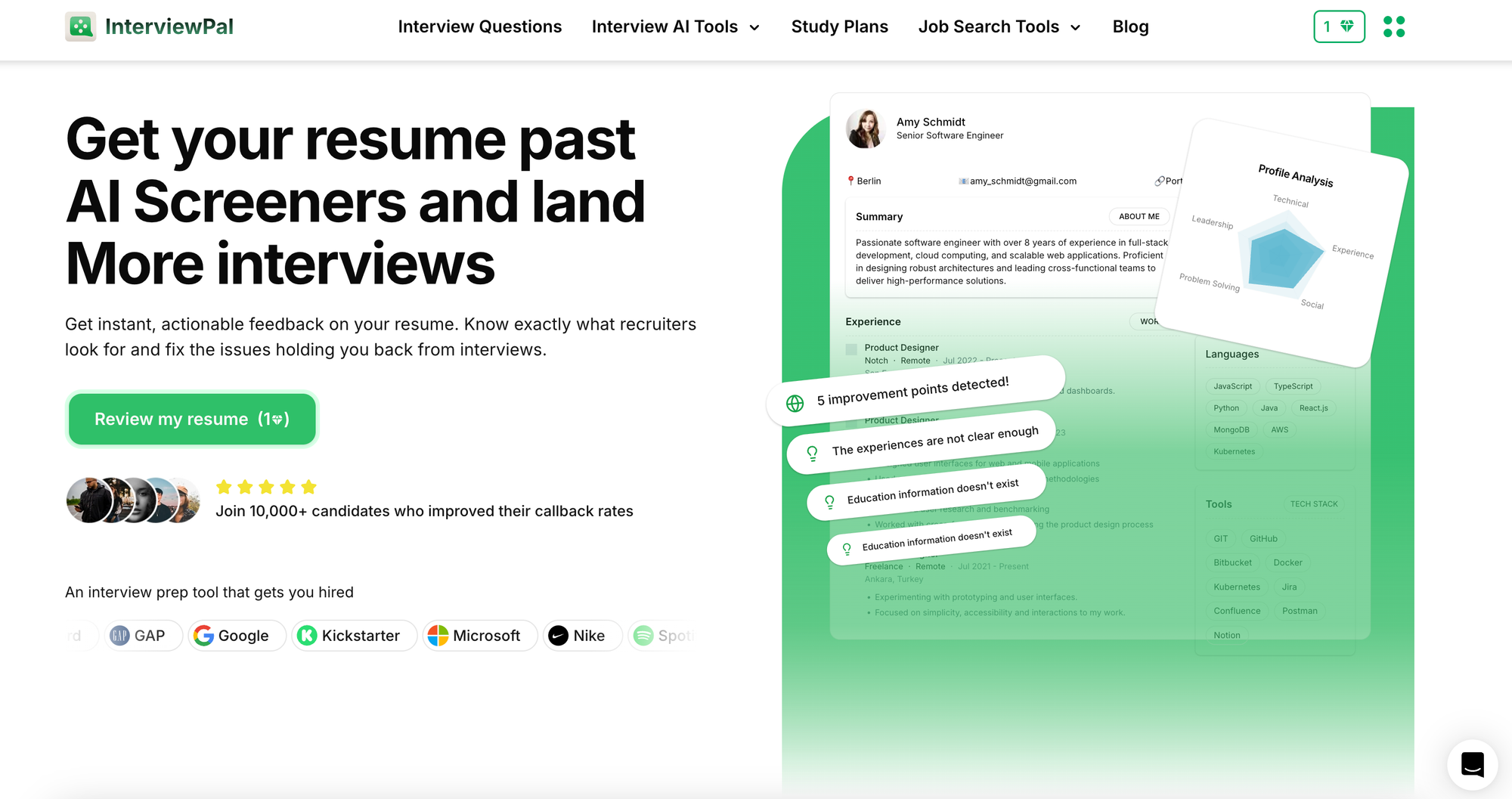How to Create a Resume With No Work Experience
Thought you had nothing to put on a resume? Been there. Here’s how to build one from scratch and how InterviewPal’s resume reviewer actually helps.

Career Advice for When You're Just Getting Started
There’s a specific kind of dread that hits when someone opens up a blank resume and realizes they’ve got… nothing. No internships. No summer jobs. Not even a babysitting gig. Just a lot of empty space and a deadline to apply for something they really want.
If you’re in that boat, you’re not alone, and you’re not stuck. Thousands of people build their first resumes every day without formal work experience. It’s doable. And no, it doesn’t have to be fake, exaggerated, or “creatively stretched.”
Here’s how to actually create a resume with no work experience - based on advice from people who’ve done it and tools that make it easier.
1. Forget the word “job” - think “experience”
The biggest mental block people hit is thinking: “I haven’t had a job, so I have nothing to write.”
But “experience” doesn’t just mean paid work. It means:
- Projects
- Volunteering
- School clubs
- Events you organized
- Things you’ve built or researched on your own
- Helping a family business
- Tutoring, mentoring, creating, editing, planning, all of it counts
Let’s say someone helped organize a fundraiser at their college. No paycheck involved, but they had to budget, plan, promote, and coordinate with vendors. That’s real project experience. Or maybe they designed a simple logo for a friend’s clothing brand. That’s creative and client work, even if it didn’t come with an invoice.
Bottom line: if you’ve done something that involved effort, learning, or responsibility, it probably belongs on your resume.
2. Structure matters (even when the content is light)
When there’s not a lot of content, structure becomes even more important. A clean, well-organized resume helps hiring managers see what’s there, not what’s missing.
Here’s a format that works well for resumes with no formal experience:
Summary
A short 2–3 sentence paragraph explaining who you are and what you're looking for. Keep it straightforward and sincere.
Example:
“Recent graduate with strong communication skills and experience organizing student-led events. Interested in operations or coordination roles where attention to detail and team collaboration are valued.”
Skills
This is where you highlight what you’re actually good at — tools, technologies, soft skills, and anything relevant to the roles you’re applying for.
Examples:
- Google Docs / Sheets
- Canva
- Social media content planning
- Writing / editing
- Team collaboration
- Customer communication
Experience or Projects
If you don’t have paid jobs, list relevant projects, volunteer work, or anything that shows initiative.
Use bullet points. Start each one with an action verb. Focus on what you did and what the result was.
Example:
Volunteer Coordinator - Campus Food Drive
- Organized logistics for 4-day donation event across campus
- Created promotional materials using Canva and Instagram
- Collected over 500 non-perishable items and coordinated delivery to local food banks
Education
List your degree, school, graduation date, and any honors or relevant coursework.
Optional Extras
Certifications, languages, portfolio links, hobbies that demonstrate curiosity or dedication - like “built and sold custom PC setups” or “managed a personal blog with 1,000+ monthly readers.”
3. Transferable skills are everything
Employers aren’t always looking for “years of experience.” They’re often looking for signs you can communicate clearly, solve problems, stay organized, or learn quickly. Those are transferable skills - and you probably have more of them than you realize.
Here are a few ways to frame everyday experiences:
- Group projects? That’s teamwork and deadline management.
- Planning a trip for your friends? That’s logistics and coordination.
- Running a small art account on Instagram? That’s content creation and basic marketing.
- Helping your cousin set up their Etsy shop? That’s entrepreneurship and customer service.
When writing your bullet points, use active language and try to show impact.
Example:
“Designed product labels and created promotional posts for a friend’s Etsy shop, contributing to a 20% increase in monthly sales.”
4. Don’t just guess - get feedback that actually helps
One of the hardest parts of writing a resume when you don’t have experience is not knowing if what you’ve written is any good. You tweak the wording, reorder the bullets, maybe delete and re-add the same line three times… but in the end, it’s all a bit of a guess.
That’s our Resume Reviewer comes in. It’s built for people who want clear, practical suggestions — not just generic grades or AI buzzwords.
Here’s how it helps:
- It highlights where your resume might be underselling your skills
- It checks if your formatting is clean and readable
- It looks for missed opportunities, like accomplishments you could be quantifying or skills you forgot to include
- And it gives you human-readable feedback you can actually act on — even if it’s your very first draft
People with no experience often feel like they have to “fake it” or oversell. But what they usually need is just a better way to frame what they’ve actually done. The Resume Reviewer helps with exactly that.
No overthinking. No wondering if it’s “good enough.” Just real tips to make your resume stronger and fast. You can try it here.

5. Make a short, honest cover letter
When your resume’s light, a well-written cover letter can do some heavy lifting.
Keep it short. Focus on why you’re interested, what makes you a strong learner or teammate, and how your past experience, even if it wasn’t paid - shows potential.
Example:
“While I don’t have formal work experience yet, I’ve led team projects, managed event logistics, and helped local groups with digital content. I’m a fast learner, genuinely excited about [company name], and would love to contribute wherever I can.”
If writing that from scratch feels overwhelming, InterviewPal’s cover letter generator can help you get started. It builds a draft from your resume and job description, you just tweak it to make it sound like you.
Everyone Starts Somewhere
The first resume will never be perfect. But it doesn’t need to be stacked with internships or polished roles to get a response. What matters more is how clearly it shows:
- You can take initiative
- You can communicate clearly
- You’re eager to learn and grow
That’s enough to get someone in the door.
And once you get that first job, the next resume becomes a whole lot easier.




